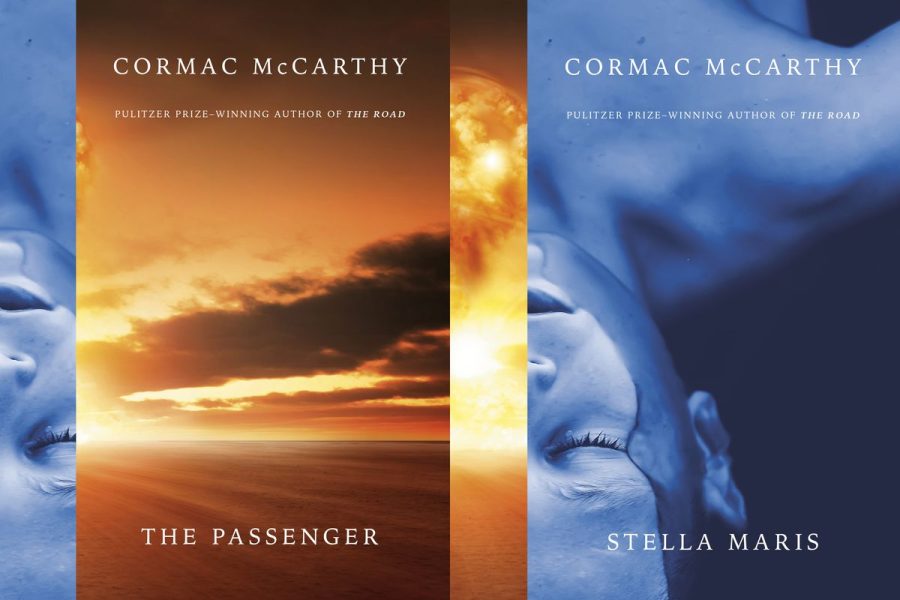After a Long Wait, Cormac McCarthy’s 2 New Novels Bring Something Different
The front covers of Cormac McCarthy’s “The Passenger” and “Stella Maris.”
Cormac McCarthy may never tell exactly why 16 years elapsed between the release of his Pulitzer-prize winning post-apocalyptic dystopian novel “The Road,” about a father and son traveling across a scorched America, in 2006, and the release of his two new (but not post-apocalyptic) novels, “The Passenger” and “Stella Maris.” McCarthy is famously averse to interviews and publicity, though not necessarily reclusive. Perhaps he needed the time to find a plot he thought could follow the immense success of “The Road.” Maybe he took a break from novel writing, which he has considered more a job than a passion; he has spoken of his affinity towards scientists rather than other writers. Whatever the cause of this pause may be, fans of McCarthy’s oeuvre can at least be happy that after so long he is bringing not one new work but two into the world.
“The Passenger” and “Stella Maris” are independent novels with independent plots, but together they tell a single, larger story.”The Passenger,” which came out October 25, follows Bobby Western, a deep-sea diver, as he evades a shadowy and absurd plot to silence him following the discovery of a small plane with nine dead bodies and one missing body. “Stella Maris,” which was released on December 6, goes back in time as the genius physicist student Alicia Western, Bobby’s younger sister, undergoes several therapy sessions during her stay at a psychiatric facility in Wisconsin. The two novels, when considered together, tell the combined story of Bobby and Alicia, embroiled in a taboo love, separated by death, time, and circumstance.
“The Passenger” is a unique departure for McCarthy, featuring new techniques for him. Unlike his earlier works, “The Passenger” features a more experimental plot structure – Bobby’s story is spliced with flashbacks to Alicia’s last few years, events that are inhabited by her schizophrenic hallucinations, characters she refers to as “the cohort.” In a way, these two stories intertwine within “The Passenger,” and Bobby’s story becomes less and less based in reality as the plot progresses. However, there are still many McCarthy hallmarks to be found: His esoteric vocabulary is back in full force, alongside his sparsely designed prose and hypnotic powers of description and symbolism. McCarthy explores different types of paranoia in the book, from Bobby’s avoidance of the shadowy figures chasing him, to people completely isolated from society, suspicious of everybody.
After “Stella Maris” comes out, a box set of the two novels will be released. Right now, the hardback of each novel is selling for between $25-30.












